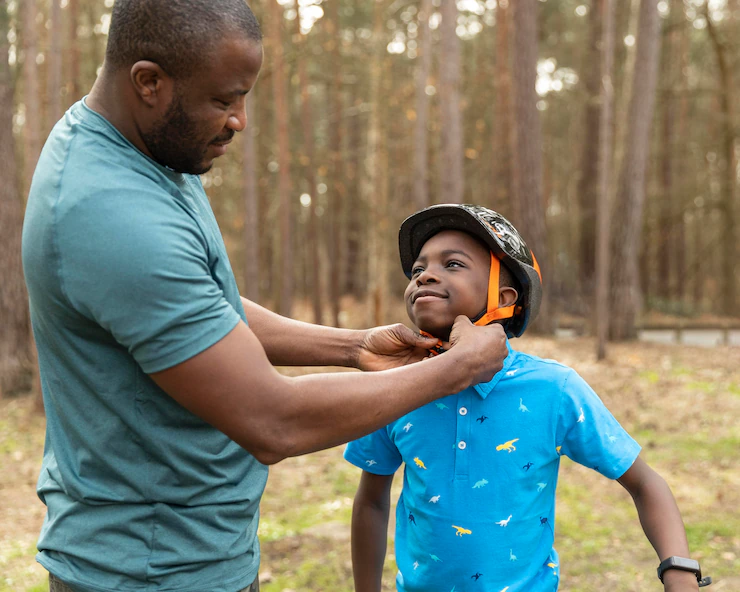Childhood experiences play a significant role in shaping our beliefs, behaviors, and relationships as adults. The way we were nurtured, the dynamics within our family, and our early interactions with caregivers can leave lasting imprints on our emotional well-being and the way we navigate relationships. In this article, we will explore the impact of childhood experiences on adult relationships and offer insights into nurturing healing and growth.
- Attachment Styles:
Attachment styles, formed in childhood, greatly influence our adult relationships. Secure attachment fosters healthy connections and a sense of trust, while insecure attachment can lead to difficulties in forming and maintaining intimate relationships. Understanding your attachment style, whether secure, anxious, or avoidant, provides insight into your relational patterns and allows for personal growth.
- Communication Patterns:
The way we communicate in relationships is often influenced by childhood experiences. Those who grew up in households with open and healthy communication tend to have better relationship communication skills. Conversely, individuals who experienced communication challenges, such as conflicts or avoidance, may struggle with expressing their needs, emotions, and vulnerabilities. Becoming aware of these patterns and seeking healthier communication strategies can positively impact relationships.
- Trust and Intimacy
Childhood experiences greatly influence our ability to trust and engage in intimate relationships. If trust was broken or absent in early relationships, it can create challenges in forming deep emotional connections. Developing trust and intimacy requires vulnerability, empathy, and a commitment to healing past wounds. Cultivating a safe and supportive environment within the relationship can foster growth and emotional closeness.
- Self-Worth and Self-Esteem
Childhood experiences heavily influence our self-worth and self-esteem. Positive and nurturing experiences foster a healthy sense of self-worth, while neglect or abuse can lead to low self-esteem and self-doubt. Understanding and addressing these underlying beliefs and working on self-acceptance and self-care are crucial for building healthy and fulfilling relationships.
- Emotional Regulation
Childhood experiences shape our ability to regulate emotions. Individuals who grew up in emotionally supportive environments tend to have better emotional regulation skills, while those who experienced neglect or emotional volatility may struggle with managing their emotions in relationships. Developing emotional intelligence and learning healthy coping mechanisms can help create a safe emotional space within the relationship.
- Patterns of Conflict
Conflict resolution styles are often influenced by childhood experiences. Individuals who witnessed healthy conflict resolution in their families are more likely to engage in constructive dialogue, while those who witnessed unresolved conflicts or aggression may resort to avoidance, aggression, or unhealthy patterns. Learning effective conflict resolution skills, such as active listening, empathy, and compromise, can transform conflict into an opportunity for growth and understanding.
- Healing and Growth
Recognizing the impact of childhood experiences on relationships is the first step towards healing and personal growth. Seeking professional help, such as therapy or counseling, can provide a supportive space to explore past experiences, heal emotional wounds, and develop healthier relationship patterns. Engaging in self-reflection, self-compassion, and self-care practices also contribute to personal growth and the ability to cultivate fulfilling relationships.
- Open Communication
Open communication within the relationship is essential when addressing the impact of childhood experiences. Sharing vulnerabilities, expressing needs, and actively listening to your partner’s experiences fosters understanding and empathy. Creating a safe space for open dialogue allows for healing, growth, and the building of a resilient and supportive partnership.
- Empathy and Compassion
Developing empathy and compassion for yourself and your partner is crucial when understanding the impact of childhood experiences. Recognize that both you and your partner have unique stories and that compassion and understanding are vital ingredients for creating a nurturing and supportive relationship. Practice empathy by seeking to understand each other’s perspectives and offering support and validation.
- Continual Growth and Learning
Relationships are ever-evolving, and it’s important to acknowledge that healing and growth are ongoing processes. Committing to personal development, exploring the impact of childhood experiences, and engaging in couples’ therapy or relationship enrichment programs can contribute to the continual growth of your relationship. Embrace the journey of self-discovery and learning together, and let it strengthen your bond.
Understanding the impact of childhood experiences on adult relationships empowers individuals to navigate challenges, heal emotional wounds, and foster healthier and more fulfilling connections. By acknowledging the influence of the past and actively working towards growth and healing, individuals can create nurturing, resilient, and loving relationships. Remember, you have the power to shape your present and future, and with dedication and self-awareness, you can build a relationship based on trust, love, and shared growth.










